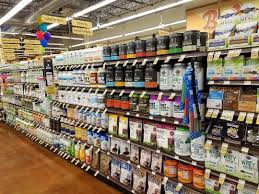They may contain added sugar, calories, or even toxic chemicals.
Adding protein powder to a glass of milk or a smoothie may seem like a simple way to boost your health. After, all, protein is essential for building and maintaining muscle, bone strength, and numerous body functions. And many older adults don't consume enough protein because of a reduced appetite.
But be careful: a scoop of chocolate or vanilla protein powder can harbor health risks.
What is protein powder?
Protein powders are powdered forms of protein that come from plants (soybeans, peas, rice, potatoes, or hemp), eggs, or milk (casein or whey protein). The powders may include other ingredients such as added sugars, artificial flavoring, thickeners, vitamins, and minerals. The amount of protein per scoop can vary from 10 to 30 grams. Supplements used for building muscle contain relatively more protein, and supplements used for weight loss contain relatively less.
What are the risks?
There are numerous risks to consider when using a protein powder. Among them:
-
A protein powder is a dietary supplement. The FDA leaves it up to manufacturers to evaluate the safety and labeling of products. So there's no way to know if a protein powder contains what manufacturers claim.
-
It may cause digestive distress. "People with dairy allergies or trouble digesting lactose [milk sugar] can experience gastrointestinal discomfort if they use a milk-based protein powder," McManus points out.
-
It may be high in added sugars and calories. Some protein powders have little added sugar, and others have a lot (as much as 23 grams per scoop). Some protein powders wind up turning a glass of milk into a drink with more than 1,200 calories. The risk: weight gain and an unhealthy spike in blood sugar. The American Heart Association recommends a limit of 24 grams of added sugar per day for women and 36 grams for men.
A new risk revealed
Earlier this year, a nonprofit group called the Clean Label Project released a report about toxins in protein powders. Researchers screened 134 products for 130 types of toxins and found that many off-the-shelf protein powders contained heavy metals (lead, arsenic, cadmium, and mercury), bisphenol-A (BPA, which is used to make plastic), pesticides, or other contaminants with links to cancer and other health conditions. Some toxins were present in significant quantities. For example, one protein powder contained 25 times the allowed limit of BPA.
How could protein powder contain so many contaminants? The Clean Label Project points to manufacturing processes or the existence of toxins in soil (absorbed by plants that are made into protein powders).
What you should do
Try a customized protein powder that allows you to pick and choose tailored to your health.
